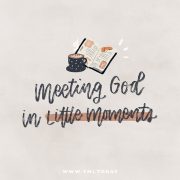Surviving Sexual Assault: How I’m Learning to Forgive My Abuser
It wasn’t just the way her hands crept onto my body, and the sinking dread of knowing it was about to happen again.
It was the way she spun her stories afterwards, to justify what she did. How she’d mock me for being wrecked, or guilt me by claiming I led her on, or paint herself as a victim who had no one else to love. Or how she’d tell me I wasn’t a good Christian if I didn’t give her another chance.
It was also the way her narrative would always win. I didn’t dare report her for ages. She was in her 40s, a respectable senior church staff. I was in my early 20s. Who would believe me over her?
It was how she was still framing herself as the victim of this situation even after she was fired for sexual misconduct, when I finally reported her five years later.
The assaults left no physical scars. My rage and bitterness felt like the only tangible signs I had to demonstrate that something terrible had happened to me. If I just forgave her, was I telling everyone that the injustice didn’t matter?
The God Who Sees Me
My refusal to forgive my abuser stemmed from a deep cry to be seen. I needed to know that God grieved when I had been violated to fulfil someone else’s selfish lust. I needed to know that I was worthy enough to have my suffering acknowledged.
I needed to know Him like Hagar did (Genesis 16:1–13). As a servant, sexually exploited, carrying her master’s child, abused by her mistress, and forced to flee to protect herself, she was the definition of an overlooked woman. Yet after her encounter with God, she proclaimed, “You are the God who sees me” (Genesis 16:13).
In two powerful ways, God showed me that He saw me too. In the first, I was reading Elie Wiesel’s Night one evening, an iconic memoir about how Wiesel survived the Holocaust as a 15-year-old boy. His piercing words had me grieving over how much the Jews had to suffer.
Then, a distinct thought surfaced, if I could feel this pain over an injustice, what more God? Inexplicably, I could now imagine the anguish God must have felt over what had happened to me.
A few weeks later, I was meditating over what it meant that God was a perfect Judge (1 Peter 2:23). I’d started by imagining myself presenting my case before Him, and then paused, unsure of how the scenario would unfold.
To my surprise, the scene continued in my mind’s eye. The omniscient Judge, who saw the situation more clearly than I did, answered immediately, “Yes, it is as you’ve said.” And He continued, “And the penalty of her sin is death” (Romans 6:23). Before I could gasp at the harshness of the sentence, I saw Jesus step up to say, “And I will pay it.”
The whole scene was over in five seconds. But it was enormously liberating to realize that I would never have to plead for a perfect Judge to believe me. Nothing escaped His eye. Suddenly it no longer mattered what narratives my abuser continued to tell. God knew the truth and before Him, every lie would eventually amount to dust.
I no longer wanted to cling to my pain in a bid to be seen. I saw that I already was.
Forgiveness Does Not Short-Change Us
But it still troubled me that Jesus took the full brunt of her punishment. I knew that conventional Christian teaching would remind me that I, too, am a sinner forgiven by the finished work of the cross. Having received that grace, I ought to extend the same grace to my abuser.
I simply couldn’t resonate with that. Grace for her didn’t feel like justice for me. I wanted her, not Jesus, to feel every bit of the pain that she’d inflicted so that she’d know what her actions cost me. I feared that if I canceled what she owed, I was never going to be repaid.
But thinking that her suffering would compensate her debt would have been like getting a billion rocks back for the billion dollars she stole. Her suffering wasn’t going to make my life rich again, or add any intrinsic good to my life. Only God could do that.
When Jesus died for our sins, that wasn’t the end of His story. God powerfully resurrected Him and allowed Him to conquer sin and death (Ephesians 1:19–22). That same resurrection power was placed in me when I believed in Him (Romans 8:11).
By being in Christ, the ‘deaths’ that her sin caused in my life (James 1:15) did not have to be permanent. Not the death of my sexual or emotional wholeness. Not the death of my trust or my mental health. Not the death of years of my time from being trapped in a manipulative dynamic. This life after death was only possible because it was Jesus who bore the consequences of sin, and not her.
As psychiatrists Henry Cloud and Stuart Townsend write, “To forgive means acknowledging we will never get from that person what is owed to us. […] Let it go, and go get what you need from God and people who can give.”[1]
By wanting me to accept that Jesus paid her debt, God wasn’t asking me to erase my past. He was asking me to choose a better future. To borrow theologian Miroslav Volf’s words, the resurrection power of the cross meant “that the torturer will not eternally triumph over the victim.”[2] The assault wouldn’t have to be the last word on my story.
Where I thought forgiving my abuser would end up short-changing me, God showed me that it would enrich my life instead. He paid her debt so that I didn’t need to wait in vain for something she could never give. I could now be free to turn to Him to “bring me back to life” (Romans 8:11).
And He did. He provided me with a therapist who helped me chip away at the PTSD for eight months. He brought me to a new church community, strengthened my healthy friendships, and gave me meaningful work and volunteering opportunities. Most importantly, He rebuilt the foundations of my faith to show me that He is worthy of my trust.
It was slow, and at times arduous, work. It didn’t look like much was changing from day to day. But as I look at my new life just a year on from learning to forgive her, I can see what a good, healthy and peaceful life He has already built for me. Even though I didn’t get anything I wanted from her, I realize that I hadn’t needed any of it to thrive.
Forgiveness—An Ongoing Choice
That is not to say I don’t still feel rage from time to time, especially when I’m hit with a PTSD trigger or yet another realization of what the assaults have cost me. But as I keep choosing to forgive, it gets easier to release her from her debt and turn back to God for what I need in the moment. Perhaps there’ll even be a day where I can forgive her purely because I want to extend grace to her, and not because it benefits me.
For now, I know that forgiving her doesn’t mean covering up, forgetting, or rewriting the assaults. God has seen them; He will work through what has happened in His own just way and in His own time. Instead, forgiving her means that I can see more than my pain and brokenness: I can see a life beyond the assault.
Endnotes:
[1] Dr Henry Cloud and Dr John Townsend, Boundaries: When to Say Yes, How to Say No to Take Control of Your Life (Grand Rapids, Michigan: Zondervan, 2017), 292.
[2] Miroslav Volf, Exclusion and Embrace: A Theological Exploration of Identity, Otherness and Reconciliation (Nashville, Tennessee: Arbington Press, 1996), 124.
Editor’s Note: This article is the second of a three-part series on sexual assault. Read the first part, “Surviving Sexual Assault: How I Learned to Forgive Myself” here, and the final part, “Surviving Sexual Assault: Why It Has Been Difficult to Forgive the Church” here.












So similar to my case….
Dear Gillian,
I’m so sorry to hear that. I’m praying that God will bring his healing and justice to you.
You are a precious flower in God’s eyes.
“For now, I know that forgiving her doesn’t mean covering up, forgetting, or rewriting the assaults. God has seen them; He will work through what has happened in His own just way and in His own time. Instead, forgiving her means that I can see more than my pain and brokenness: I can see a life beyond the assault.”
Thank you for your openness to share your struggles and your pain. It hasn’t been easy to forgive the ones who have wronged me for the past 18 years. I get PTSDs occasionally but despite of all pain in processing it, like you said God saw and knew all things. Your article reminded me even when all men/women or body of Christ failed, God didn’t. He saw, knew, understood every bits and pieces I gone through, and that does not discount our worth in God.
Through the cracks in the shattered vessel and darkness, the light shines ever brighter. I’m sorry for what you went through and I’m glad you are processing it well and having the right network of support and community to move on through all your pain.
Despite all, You’re His beautiful masterpiece, His beautiful image bearer, and nothing can discount that even the incidents that took place in your life, and I believe He can restore us all in our journey of healing in His grace.
Thank you Nelle for your write up, it encourages me too I can choose forgiveness over and over again and release God’s judgment and His prerogative rights in all.
Praying for you on this day.
Thank you for being vulnerable and sharing. I loved reading this post and being aware of how God is present in such traumatic circumstances. I too have experienced an assault of a member of my family- who attended my church and makes matters complex when you have no one to be open with without judgement, as these issues are rarely discussed in the church community.